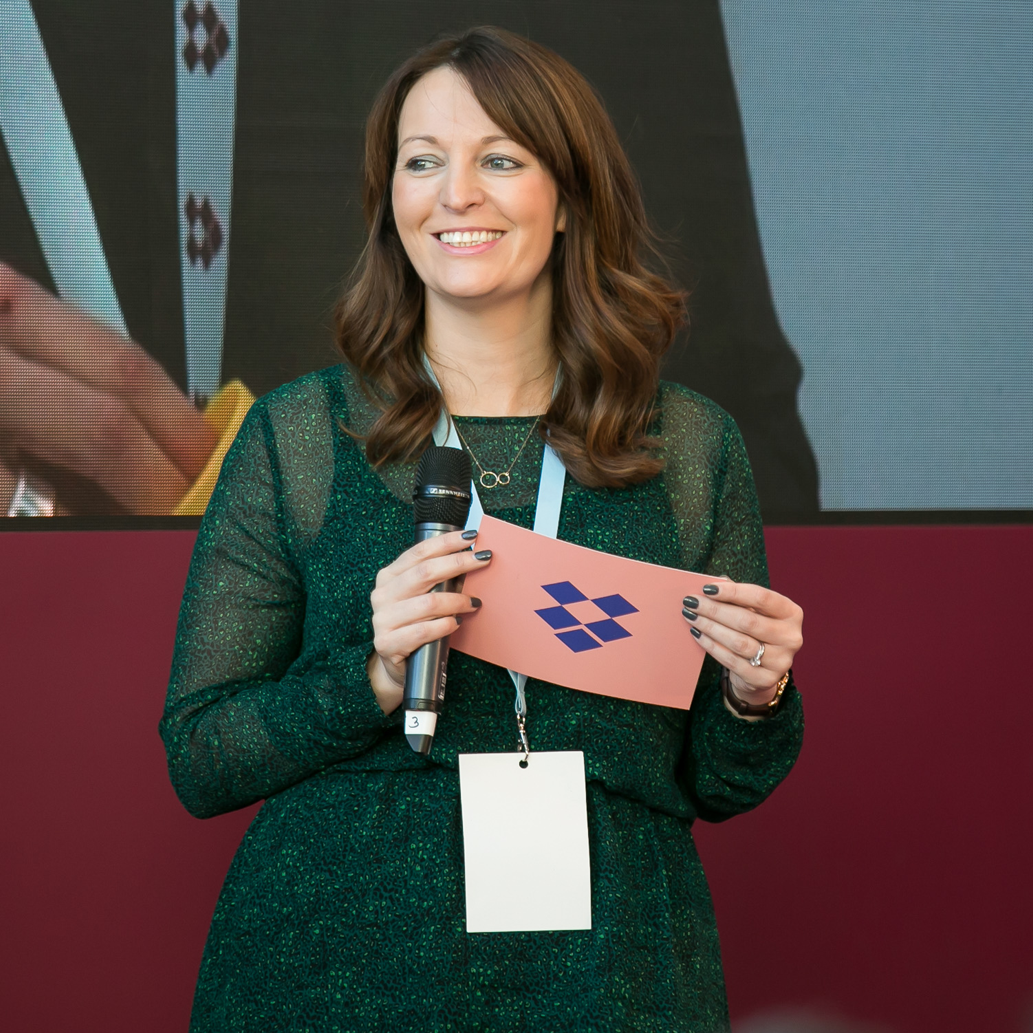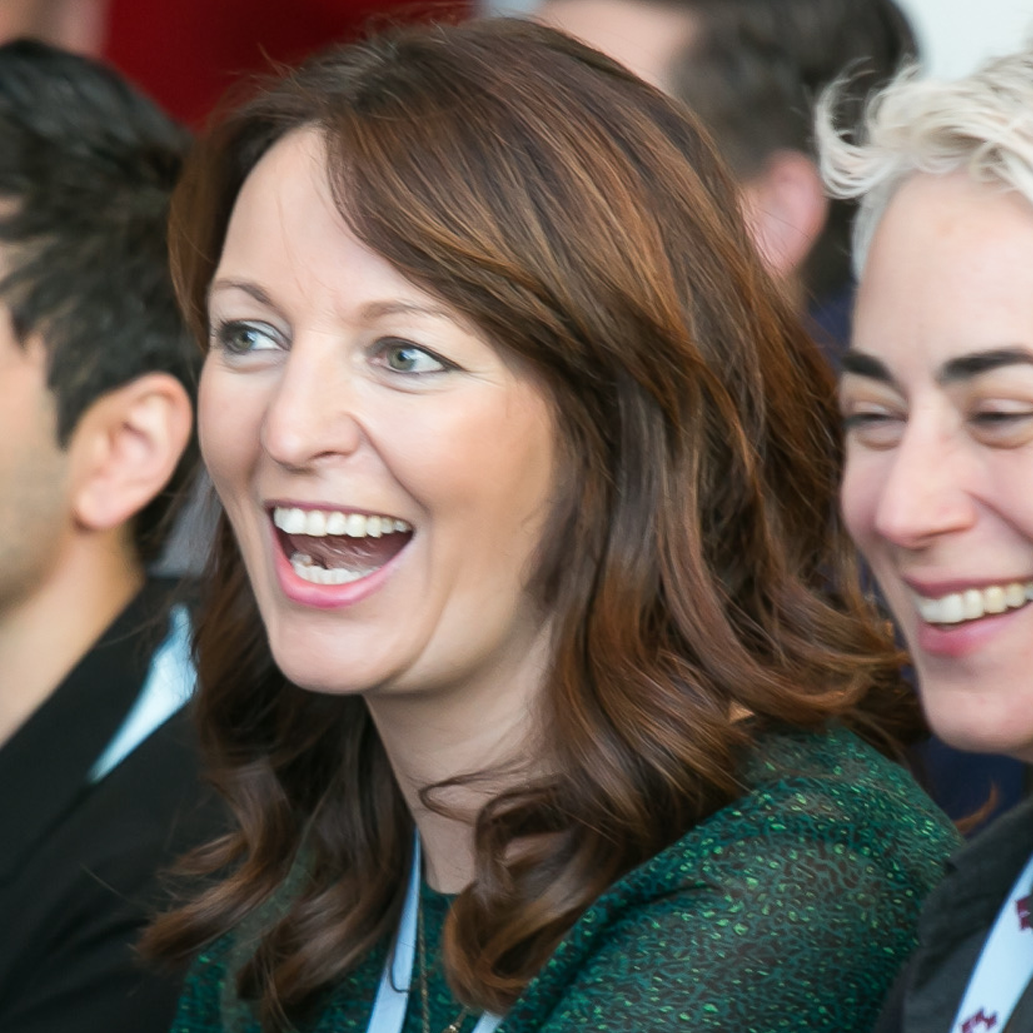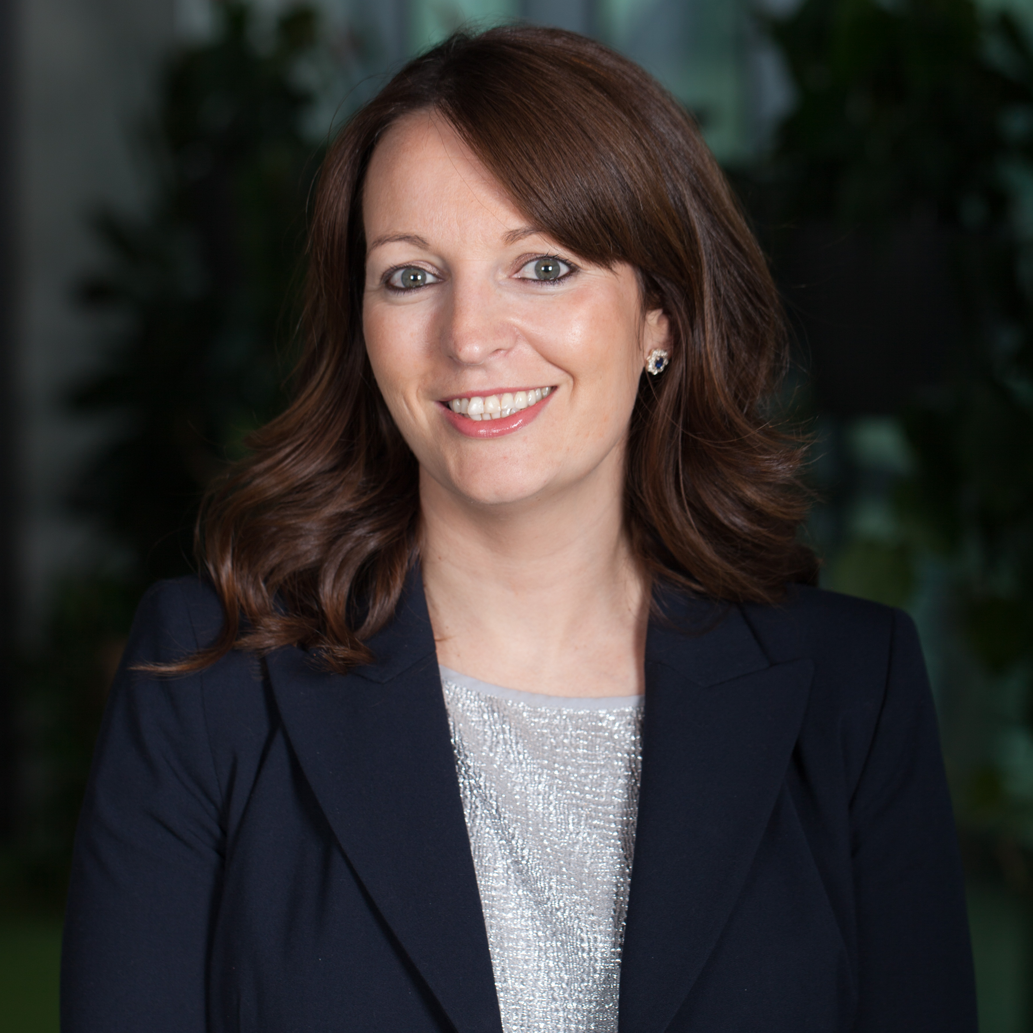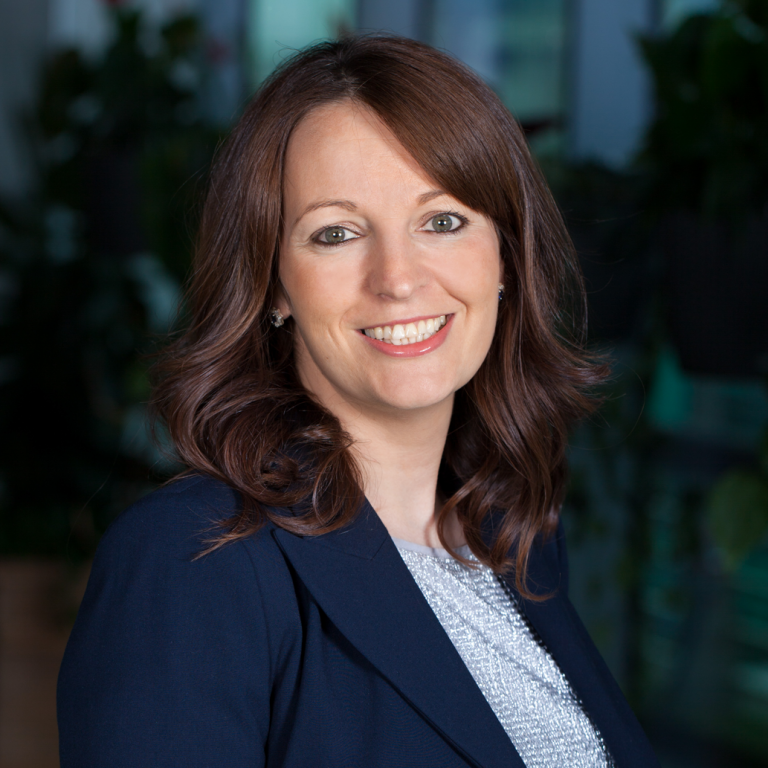Laura take us back to your early life and how you found the path into HR.
I left school and set off for Galway University to study for a Bachelor of Commerce, a very general degree which reflected the fact that I had no idea what I wanted to do in terms of a career. It really was a process of very unscientific elimination and finally came down to either HR or accountancy – I decided I had a closer affinity with people than numbers. However, I didn’t immediately forge ahead for HR and was contemplating taking a higher diploma in teaching. But after a year of teaching practice, I discovered that it was not the path I wanted to take. One thing was sure, I had reached an important early crossroads perhaps and I also needed a job, so I applied for a recruiter role and moved to the bright city lights of Dublin. This was when the so-called Celtic Tiger was in full roar and I was still figuring out what I wanted to do in my career long term. Fairly quickly, I realised I didn’t want a long-term career in recruitment, so I started to apply for HR roles and managed to land one at Aviva, the insurance company, based in Dublin. It was a fantastic place for me to experience multiple HR functions and learn my craft. I was involved quickly in a variety of roles including voluntary redundancy programmes and compensation analysis, where I honed my skills to deal with sensitive issues. I quickly learned the importance of treating people with dignity and respect. I was praised for the compassion and empathy I showed… and I wondered how else would anybody handle it? Bearing in mind, this was over 16 years ago when making work human was not the issue of importance it is today. I began to flourish and caught the attention of the HR Director at the time and he really encouraged me and made sure that I took every opportunity that came my way. Within a year, I was HR Business Partner – somewhat unqualified – but, encouragingly, making good progress and that was my role for the next five years at Aviva. I gained masses of experience, including a secondment to Warsaw and worked with McKinsey Consultants for a year, on project and programme management, as the company rapidly expanded. But there comes a point when you know you have to move on.

Tell us about your next move.
I had gained so much from HR business partnering, as a position of influence and relationship management and I knew that the next move had to be a strategic one to move my career onwards. The reality was, I had to be a little bit more courageous and ambitious. One of the big headliners in Dublin at the time was Google, which had established its EMEA HQ in Dublin in 2003. One of my managers at Aviva, left to head up People Operations for Google Ireland. So, a few months on, I made the call about what opportunities were available, applied and duly went through all the recruitment procedures and joined Google as HR Business Partner for the geo maps operations. This was 2010 and in Dublin, Google was growing quickly – within the five years I was there, it had more than doubled. So, the scale and the growth was phenomenal and I can best describe my time there as a wild ride. I was part of the team building out the geo operations function for Europe and there was a crescendo of excitement surrounding what we were building towards. My role was initially focused on setting up an operations centre, where we had almost 30 different languages, all ringing local businesses around the globe, to verify business listings and the energy and buzz was phenomenal! While the technical magic was unfolding and we were building something new and impactful for the world, I was leading recruitment activities and building HR policies to keep up with the phenomenal pace of change and growth. This was very much a new venture for Google, we had no blueprint or dusty tome for me to refer to, so I was learning fast and I loved it.

It’s what every ambitious HR leader dreams of, a clean sheet of paper.
We were definitely in unchartered territory, pioneering HR and with no margin for error, because of the sheer speed of scale. I always remember street view had just been launched a short while before I joined and if you can imagine a world where street view was so unknown and new, we had calls and letters from people saying things like, “can you come around and take the pictures again, we’ve just painted the house”. Unquestionably, it was a project beyond the imagination of most and yet we all take it for granted now. But it was great to play a small role in something so globally impactful. It was chaotic a times, but wonderful. After my first two years, I moved into partner with some leaders in engineering and sales, which was great to gain another different experience. Then I went on maternity leave in 2014, had my first daughter Anna and never imagined that I wasn’t going to return, as I loved Google. However, during my leave, a couple of colleagues had moved to Dropbox and kept in contact. I really liked the sound of how they were describing the organisation, particularly from a cultural perspective. I was intrigued then, out of the blue, I received a call from Dropbox, inviting me for an informal coffee and chat. It spoke to a new experience and opportunity to lead regionally and grow something at an earlier stage than Google. This was also an opportunity to work in a business at that very vibrant point of growth and scale. But most significantly, for me personally, I was offered my first Head of HR role. I was unsure if I was ready to make the leap, but I was definitely willing to give it my best shot.

Interviewees often say “I loved the culture” but, when asked to articulate what it is about the culture that was so compelling, they struggle. So, what was it about the culture at Dropbox?
There’s something deeply personal about the environment, people are at ease and are encouraged to bring their whole self to work, which creates a very real and authentic experience. It doesn’t take some advanced HR super science to pick up on that vibe and it’s certainly not about a wipe-clean poster on the walls, with a set of values. There’s a casualness about the confidence – which is an intriguing mix – and an almost homely atmosphere, which supports a caring, nurturing and collaborative culture, without being claustrophobic. We encourage and celebrate human skills such as humility, vulnerability and empathy and people definitely feel they have the safety and support to try and fail and it feels natural. It’s the first time in my career that I personally experienced the impact of that level of kindness and care for others, it didn’t feel forced. That was actually a major selling point for the company and it just had the message of “this is a great place to work”.
So, what is HR’s role in optimising outcomes in such a natural and organic culture?
Is there a danger of some spiky directive upsetting the harmony? When I was at Google, I learned the importance and power of culture – it really enables positive collaboration and this is what we have built here. When I joined, I did have to think long and hard about HR intervention being all about nurturing the culture and maintaining that balance of energy and passion with compassion. So first, I turned a focus to the needs of the business, which was to continue to grow out its international footprint and find its competitive edge. I have to say, when I look back at my early days here, I really learnt the importance of that overused “A” word, agility. I confess, that when I hear or read people in HR talk about agility, I sometimes glaze over. Again, change is another cliché and if you boil down the tech market it’s not just about change or agility, but continuous evolution, which has constantly asked hard and even existential questions about Dropbox, as it transitioned from a cloud storage organisation, to a file sharing sync organisation and now we’re forging a new category, called Smart Workspace, which we believe is really going to shape the future of distributed work.
Explain about this new element of the business and why it’s so significant to how people now work and organisations operate?
Dropbox has a mission to create an enlightened way of working. We’re an organisation that wants to provide solutions for how people live and work and the reality now is, we are all “on” all of the time, whether for work or our personal lives. Now, because of the pandemic, we are going through a huge change in the way we work. There was a shift beginning to happen, but this has accelerated in the last few months and understanding the ramifications of “no-off-switch”, is integral to how we are poised to meet the future. We are all witnessing the devastating impact of burnout and work-related stress – it’s real and it’s happening all around us. Paradoxically, the numerous apps that employees now rely on have become a distraction and can negatively impact productivity. So fundamentally, this is where we intend to occupy a unique position, where we collectively hold a responsibility to help solve that problem. Therefore, we have built the world’s first smart workspace, where we are aiming to help people and teams focus on the work that matters. The workspace is a digital environment that brings all of a team’s content together with the tools they love and cuts through the clutter, so employees are served with the information that matters. We’re partnering with companies with the likes of Google, Microsoft, Zoom, Slack and a whole host of others integrate with our platform so we can help people eliminate “work about work” and allow deep focus time. We believe this approach will enable people to do their best work.
You mention the current pandemic crisis which is, of course, front of mind for all. So, explain how you are leading your HR team to combat the current crisis and set plans for the future?
The first reality was – like most businesses – our workforce was going to be 100 percent remote for the first time ever, but an obvious advantage for us was that our actual product lends itself really well to distributed work. Also, our trust and culture of empowerment is deep in the DNA, so we moved quickly to ensure employees had the right equipment to set up a physical space and gave an allowance to put the right equipment in place. I have been so proud of the innovative solutions, the quality of the output and the pace at which the HR team reacted to the crisis. As a team, we are always thinking about the employee experience and so we began to offer guidance for increased flexibility and support. We introduced online seminars on topics such as; mental health during lockdown, tips for working and parenting and helping with anxiety, as well as online learning and development courses, so employees feel they are being nurtured. We held a company day off in May and June, and plan to do so for the remainder of the summer. Some employees noted that it was as good as a week’s vacation and were truly able to unplug. We have also offered extra time off for caregivers and flexible time off for everyone else. Being mindful that this is a stressful time for people is key – so we have asked people to ruthlessly prioritise and really look at our to-do lists, to decipher what is important right now and what can be put on hold until things get back to normal… whatever normal will be! Finally, communication is key and our leadership team has done a great job, ensuring that our employees feel connected even when remote. During this time, we completed our bi-annual employment survey and added some questions on how our employees feel about working remotely and what they would like to see from the workplace of the future – we are a feedback company and everything we do has our employees front of mind.
I’m of the opinion that people are generally good and HR should be built on trust. If employers continue to legislate for the minority that is deemed unreliable, they are creating a more difficult path. The Covid-19 crisis is unquestionably a tragic event unfolding, but it’s also holding a very telling mirror up on organisations and society as a whole and lessons need to be learnt. This leans into the work we’ve been carrying out in HR, in preparing leadership and challenging them to think about their employees in a different way, to move away from presenteeism cultures and fundamentally change the understanding of how outputs and performance are measured. We need to stop watching time and, as much as I talk about the progressive environment at Dropbox, I still have managers come to me and praise people because “they’re the first in and the last to leave”. I think HR’s core focus is to take every opportunity to challenge traditional thinking and, only by doing that, will we start to shift mindsets. There’s constant talk about cultural shifts, but leaders need to be the role models of change.
Do you think HR is up to the task of marshalling through the changes in culture and behaviour necessary to meet future challenges?
Yes, the spotlight is on HR to shape the future of the workplace, changing it from a physical place we go, to a thing we do and are enabled by organisations to be successful anywhere. There has to be a leap of faith and trust and a re-establishment of the HR role within organisations – there’s definitely work to be done to forge HR’s position – but believe me, I’m not peddling that old cliché of having a seat at the table. There’s a lot of discussion about the flatter workforce, the breakdown of the hierarchical framework, knowledge sharing and collaboration and, without doubt, all of that will force a new way of leading and will necessitate HR to change the way it operates. It’s all about fallibility, listening not talking, magnanimity trumping dynamism and adaptability not optimisations. All that is radical change, but it still requires HR leadership and influence. For instance, I believe the organisations that don’t embrace distributed work, will struggle to find and retain talent – this is how HR can have huge influence on the future of work.
As Dolly Parton so prophetically said: “Workin’ nine-to-five ain’t no way to make a livin". So why do you think change is so hard?
And boy, was Dolly right! There is something deeply ingrained in minds that clouds judgements and some all-too easily revert to the traditional paradigms and that’s a challenge for sure for HR. As to why this is hard to change, it’s that other big piece of work, the fear of failure. Stick with the tried-and-tested, the status quo and you’re more likely to avoid ridicule, or the chance of failure. The fear of vulnerability is a massive obstacle, but we have been making progress and are moving in the right direction, although there is still a long way to go.
The banking crisis was so devastating that it forced banks to change culture to a point that any hint of the old behaviour is hammered flat quickly. Perhaps, similarly, the Covid-19 crisis will be an irresistible catalyst for change?
It’s asking a lot of questions about us as human beings, as a society and as businesses – it’s nature’s big spanner in the works! People are beginning to really look at the way that we’ve been operating and realise that change is imperative. It’s no secret that burnout, stress and lack of work-life balance has been on the rise and this is an opportunity to address this and come out the other end of this operating in a better way. I’m hearing that people are enjoying spending more time with family, commuting less and just having more control over their day – so now is the time to think how we can incorporate this into the workplace of the future. For me personally, spending more time with my family and less time in traffic has made me realise that I want and deserve a better quality of life. Right now, our offices remain closed until 1st September and we are working in the background on how office life will look in the future. Naturally, distributed work is going to be more than just a trend, it has already become part of working life and that’s something we are really excited about. But it’s not an easy process and we need to be mindful of people and be thoughtful in our approach. It would be good to have some positive takeaway from this horrendous crisis.
How do you maintain equilibrium when there is so much disruption, change uncharted territory and fear?
It’s about clear and consistent communication, collaboration and making sure that all stakeholders see themselves in the vision of the future. Returning to the current crisis, I’m amazed at how adaptable people are and their compassion for others. If there is a positive to draw from this crisis, it is definitely that. A very good example is, we’ve introduced remote sessions, not just about training for work, but as mentioned, supporting and guiding people on parenting during this crisis. This has worked marvels in keeping people informed and feeling that they are not isolated. In terms of a silver lining, it’s hard to see one at the moment, but I think focus is key and, for a business like Dropbox, there is both opportunity and the chance to provide solutions through technology, to solve some of the issues that people will inevitably be experiencing. We should never be afraid to try something different and I believe there has never been a greater opportunity for HR to step up to the mark, make a difference and shape the way of working for future generations. If this is to be the legacy of today’s HR leaders, I’d be privileged to be part of that.












